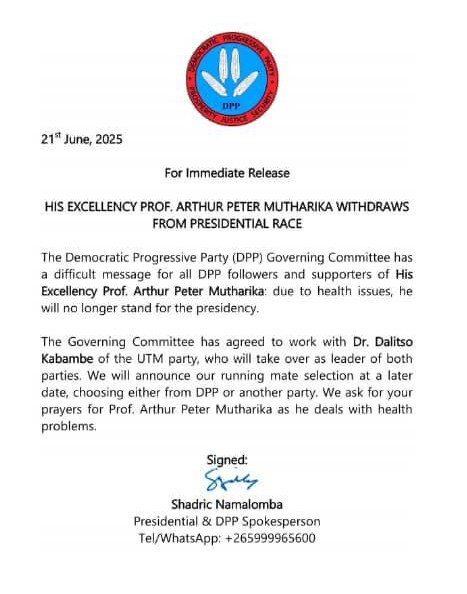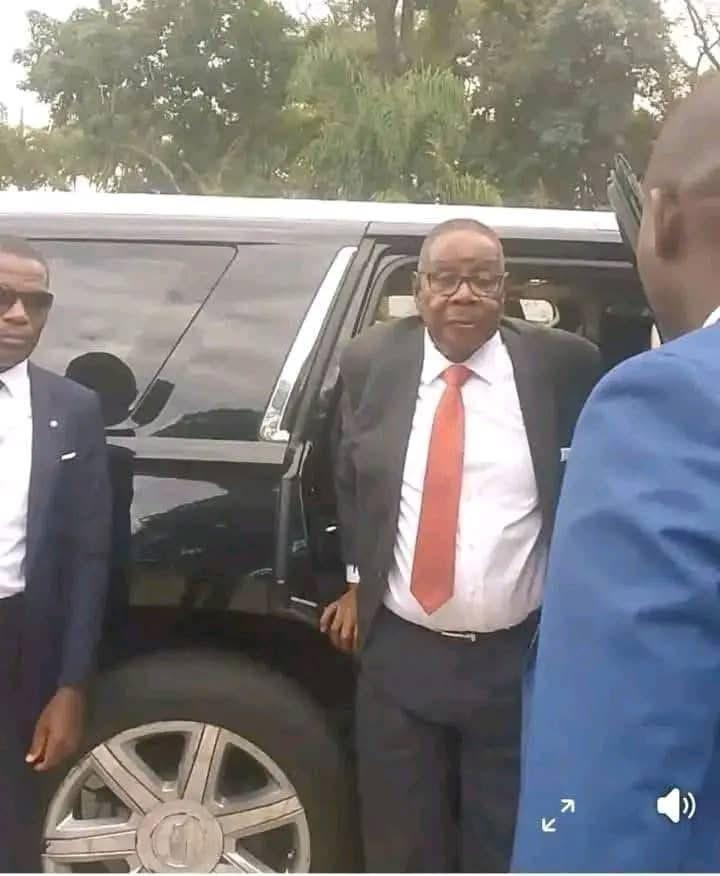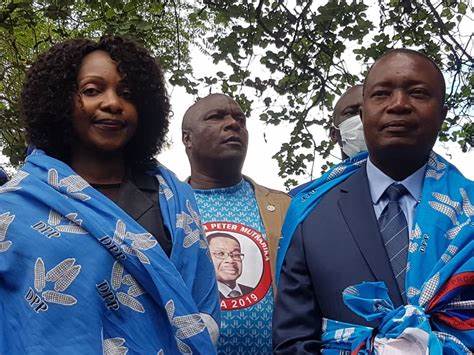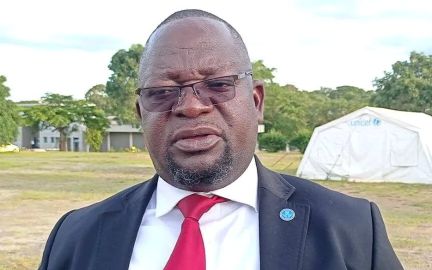The Democratic Progressive Party (DPP) is in turmoil following the release of a press statement announcing the withdrawal of former President Arthur Peter Mutharika (APM) from the upcoming September presidential race due to health issues, a decision that has since been denied by the party’s spokesperson, Shadrick Namalomba, who is reportedly on leave.
The statement, dated June 21 and signed by Namalomba himself, categorically declared that Mutharika was bowing out of the race due to deteriorating health and that the DPP had resolved to back Dr. Dalitso Kabambe, the UTM presidential hopeful, as the joint candidate for the opposition alliance.
“The Democratic Progressive Party (DPP) Governing Committee has a difficult message for all DPP followers and supporters of His Excellency Prof. Arthur Peter Mutharika: due to health issues, he will no longer stand for the presidency,” the document read.
The statement went on to state that the party had agreed to work with Kabambe and would announce a running mate at a later date.

However, in a bizarre twist, Namalomba, despite being on holiday and having publicly stated he was not handling party matters, emerged hours later to refute the statement, declaring it as fake and unauthorized.
Senior sources within the DPP have confirmed to the Pangolin Online a while ago that the statement is not a fabrication, but a leaked version of an internal consensus reached following Mutharika’s return.
“It was drafted, debated, and agreed. But when it went public, the blowback was too intense. Some party factions panicked,” said one official who requested anonymity.
The release of the statement, its eventual refutation and the confirmation from sources of the release’s authenticity has sparked confusion and raised serious questions about the DPP’s leadership, internal coordination, and the true condition of Mutharika.
Disowning of the statement from the an individual allegedly on leave has further thrown the DPP into a credibility crisis. Many are questioning how a spokesperson on leave could be allowed, or feel compelled, to override an official party statement, and whether he was part of an internal faction resisting a broader consensus within the governing committee.
“This is a case of a political party eating its own tail,” remarked a senior political scientist from the University of Malawi. “When the same spokesperson denies a statement bearing his own name and signature, we are no longer talking about simple miscommunication. This is an identity crisis.”

The Elephant in the Room: APM’s Health
The genesis of this confusion lies in growing concern over APM’s visibly frail condition. His return to Malawi earlier this week was marked by noticeable physical weakness, triggering a wave of public commentary and speculation. Photos and videos circulating on social media show the former president needing visible assistance, struggling with mobility and speech.
The backlash to his health condition was swift, forcing DPP insiders to reassess his viability as a candidate.
“It’s not just about being alive; it’s about campaigning across the country, attending rallies, debating policy. We all know he can’t do that anymore,” a top DPP executive told us.
But instead of transparency and unified messaging, the party has found itself paralyzed between truth and political loyalty, caught between factions that want to protect APM’s legacy and those urgently pushing for a transition.

Kabambe Factor and Internal Power Struggles
The withdrawal statement came soon after UTM announced change of mind that it is now ready to go into an alliance with any political party even without its leader being the torchbearer or having an offer being a running mate.
The statement has, therefore, sparked fresh tension due to its endorsement of Dr. Dalitso Kabambe, a UTM presidential aspirant who has long been controversial within DPP ranks, with others questioning whether the party was just being strategic when it announced the u-turn on its earlier position.
Kabambe is seen by many as an outsider, and the possibility of him leading the alliance, even if APM bows out, has rattled the party’s traditional base.
“There is no way the DPP can hand over the presidency to a person from another party,” said the DPP executive. “That would be a betrayal of the grassroots, especially after we stuck with APM through thick and thin.”
The DPP’s silence following these contradictions has been deafening.
With no official clarification from the party hierarchy and no indication of who is acting as spokesperson in Namalomba’s absence, the confusion has only deepened.
Political analysts say the crisis exposes more than a messaging issue, it reveals a party struggling to navigate leadership succession, generational change, and public trust in a high-stakes election year.
“The DPP is living in the shadow of its past. Without clarity and a decisive leadership transition, it risks fracturing completely before September,” said a political analyst Humphreys Mvula.
The confusion comes at a time when the DPP is attempting to cement an alliance with the United Democratic Front (UDF), Alliance for Democracy (AFORD), and possibly UTM. The leaked statement’s mention of Kabambe raises alarm for alliance partners, particularly UDF, whose supporters feel sidelined.
AFORD, on the other hand, has remained silent but is reportedly watching the DPP’s internal wrangling closely, concerned about forming alliances with a partner in disarray.
What was meant to be a dignified and orderly transition, possibly positioning APM as a kingmaker or elder statesman, is now unraveling into public chaos.
With its own spokesperson disowning a signed communication, and multiple senior officials contradicting each other behind closed doors, the DPP’s internal dysfunction is now a national spectacle.
If the party hopes to remain viable in the September elections, it must urgently resolve its leadership questions, clarify APM’s role, and speak to the Malawian people with one voice before it loses the little credibility it has left.








